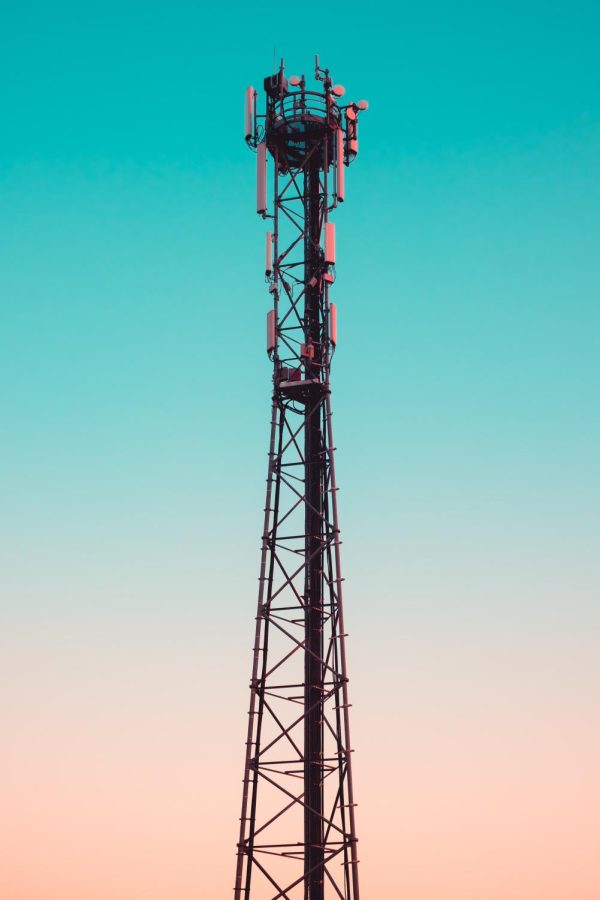Despite increasing numbers of phone manufacturers incorporating 5G in their flagship phones and more people buying these phones in hopes of crazy-fast cellular connections, customers will still have to wait for the faster network speeds they have been waiting on for two years.
5G is the fifth generation, newest form of connectivity, promising much faster Internet speeds than its predecessor 4G. In addition, it provides more reliability, massive network capacity, increased availability and higher performance.
As of Jan. 3, 2022, AT&T and Verizon, companies that originally planned to launch their 5G networks in December of 2021, have pushed their launch — first to Jan. 5, 2022, then two weeks later to Jan. 19. Attempts to give users an early Christmas present have now become a strenuous journey for the companies.
The reason for all the delays has to do with the Federal Aviation Administration’s (FAA) concerns about the potential interference of 5G networks with vital flight safety equipment. Altimeters are instruments used on aircrafts to reflect radio waves off the ground to give extremely precise altitude readings. The instrument is vital for landings, especially in conditions with limited visibility. The instrument needs an empty patch of spectrum to work, which is why the FAA is worried about the 5G network which uses waves in the C-Band spectrum radio altimeters.
However, not all planes use the radio-based altimeters.
Local pilot Neel Behere likes flying small planes for fun. He explained how not all planes work the same way. “For private pilots like me, who fly prop air planes with old analog instruments, our planes this won’t be affected,” he explained. Even GPS based navigation is not getting affected by 5G, so that’s why I feel it’s not that huge of an impact to smaller aircrafts like the ones we fly. Not all commercial airlines use the same kinds of altimeters.”
Although Behere has has no worries of 5G interfering with his fyling, he understands the concern the FAA has about the larger scale aviation. “I think it’s FAA’s risk averse policies and lack of sufficient data is causing the FAA to be cautious,” he said. “After all lives will be at stake. Some commercial [planes] do have [radio altimeters] and carry lots of passengers which I think that is the major concern. It is better to be safe than sorry.”
Originally, the two companies’ CEOs refused to delay the launch until Jan. 19, sending a furious letter to the United States Secretary of Transportation Pete Buttigieg for the last-minute delay request.
“Despite the thousands of people who had been working for almost a year towards a December 5 C-Band deployment, despite the billions of dollars of capital we have invested in our networks in 2021 to prepare for C-Band, and despite the $80 billion that the wireless industry paid last year for use of the C-Band spectrum, AT&T and Verizon agreed to wait until January 5, 2022 to begin using the C-Band,” the CEOs wrote.
They continued, “Now, on the evening of New Year’s Eve, just five days before the C-Band spectrum will be deployed, we received your letter asking us to take still more voluntary steps – to the detriment of our millions of consumer, business and government customers – to once again assist the aviation industry and the FAA after failing to resolve issues in that costly 30 -day delay period, which we never considered to be an initial one.”
The reason for their anger comes from the 40 other countries that have 5G networks available already without any resulting altimeter failures, However, some of these countries use 5G at lower power levels, lowering the concern of disrupting planes’ altimeters. “If U.S. airlines are permitted to operate flights every day in France [where 5G and aviation safety already co-exist], then the same operating conditions should allow them to do so in the United States,” the letter argued.
Nevertheless, the two companies agreed last-minute to delay their decision to two weeks later. In reality, postponing two weeks is not too big of a deal for the companies, but longer delays could start to be noticeable, especially to the customers who have been doing nothing but waiting for their 5G speeds.
Senior Nathan Romans is a Verizon user and is sad that he isn’t getting the 5G speeds he was promised earlier. “I already have some 5G speeds on my 5G phone, but the speeds don’t seem any different than the 4G I had earlier,” Romans said. “I eagerly waiting for the faster speeds in December but was disappointed to learn that the upgrade is still not coming for another two weeks.”
With all this turmoil, the consumers are ultimately the ones affected. While addressing the issues posing a risk to public safety is important, the feud between the FAA and the 5G carriers has consumers wondering why they should suffer from the lack of communication.









